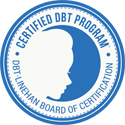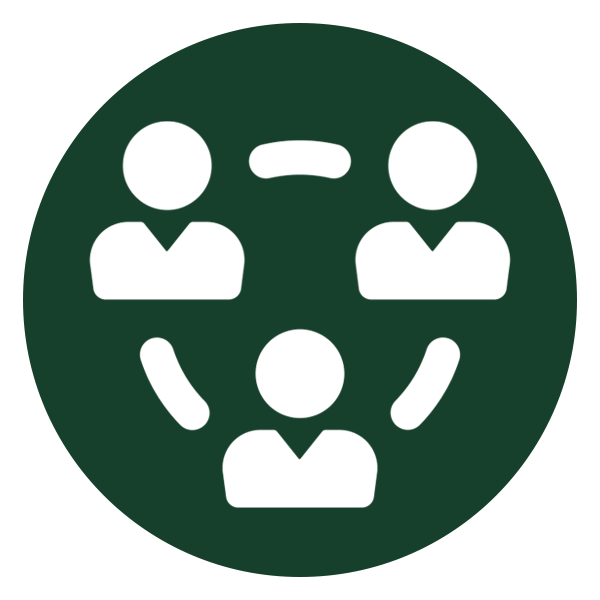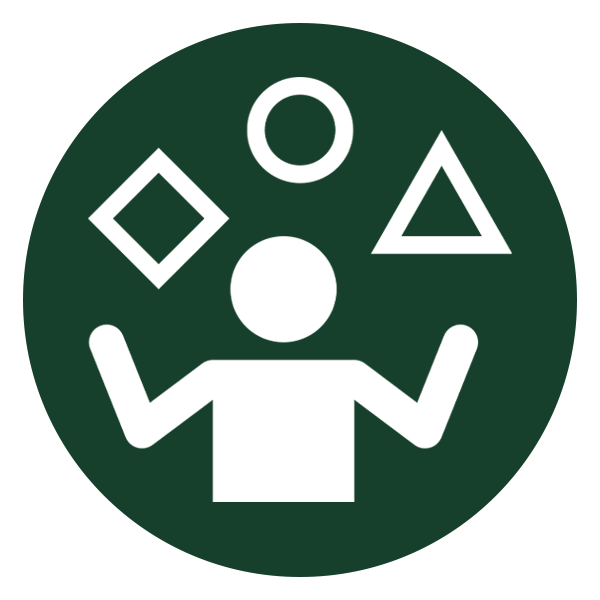Adolescent Residential Treatment for Depression in Los Angeles, CA
Treating a depressed teen can be a challenge filled with misconceptions, conflicting opinions, and misplaced shame. At Compass Behavioral Health, we focus on providing compassionate care and evidence-based therapies to help young individuals on their journey to healing and recovery. In our adolescent residential treatment for depression, we aim to provide a safe space for teens to express themselves and find the support they need to overcome depression.
When to Choose Adolescent Residential Treatment for Depression
Is adolescent residential treatment for depression the right choice for your teen? While less disruptive treatments, like medication and outpatient care, are typically the first choice, sometimes a teen needs a bit more help. A residential facility can provide the structured support needed to help them build coping skills. Residential care might be the right level of care for your child if you’re seeing:
Extended periods of depression: One misconception about depression is that it’s constant. Most teens may have a baseline of sadness but then be hit by more intense periods. If outpatient treatment is not reducing the length of these, residential care may be appropriate.
Diminished interest: Many depressed teens experience numbness that prevents them from finding joy in things they once loved or experiencing pleasure in everyday life. This emotional numbness can be isolating and confusing for teens and their families.
Weight changes: Significant weight loss or weight gain and decreased or increased appetite can often be telltale signs of a teen’s struggle with depression. These changes in eating habits can indicate the emotional turmoil they are experiencing.
Sleep/energy changes: Insomnia or hypersomnia (sleeping all the time), along with restlessness or a noticeable decrease in activity, may manifest in depressed teens. These sleep and energy disturbances can disrupt their daily routines and contribute to their overall sense of fatigue and listlessness.
Self-harm or suicidal ideation: Feeling worthless or experiencing an excessive amount of guilt can lead to recurring thoughts of death or suicide. Depression can make these thoughts seem overpowering, but with proper intervention and support, there is hope for recovery and healing for struggling teens.

The above issues can become severe enough that they are safety concerns. If your child has not successfully completed outpatient treatment for the above issues, has repeat hospitalizations, or has severe interpersonal issues, it may be time to choose a residential treatment center.
DBT and Adolescent Residential Treatment for Depression
Cognitive behavioral, interpersonal, and family therapy are all common approaches for teens with depression. However, these therapies may leave gaps. Many teens don’t have the support needed for family therapy. Meanwhile, traditional interpersonal therapy requires a lot of personal commitment – the kind of commitment that a severely depressed teen might struggle to muster.
Dialectical Behavior Therapy (DBT) combines those strategies with other evidence-based treatment standards to fill gaps in treatment. This is the approach that Compass Behavioral Health takes with adolescent residential treatment for depression at our Los Angeles center.
| What Is DBT? |
|---|
| Dialectical Behavior Therapy, known as DBT, aims to equip individuals with the essential skills for regulating emotions, enhancing interpersonal effectiveness, tolerating distress, and embracing acceptance. Through radical self-acceptance and skills development, teens learn to validate their feelings and change their behaviors. I can accept myself as I am while also changing destructive behaviors. |

Compass Behavioral Health proudly holds the distinction of being California’s first Certified Program™ by the DBT-Linehan Board of Certification. Our program is highly respected and is designated as a DBT Rotation & Training Site for UCI Medical School Child & Adolescent
Questions to Ask About Residential Therapy for Your Teen
When searching for adolescent residential treatment for depression, it’s crucial to identify facilities with specialized expertise in treating this complex condition. To assist you in making an informed decision, here are a few key questions you should consider asking.
How can I ensure the staff at a residential care facility are qualified to treat depression in adolescents?
Facilities should be transparent and forthcoming about the certifications and licenses their therapists hold. You want the professionals treating your child to possess valid credentials in evidence-based approaches for adolescent depression treatment.
What safety measures are in place for teens with a history of self-harm or suicidal thoughts?
Depressed teens may experience additional behavioral challenges, such as self-harm or thoughts of suicide. A comprehensive program should implement robust protocols to guarantee your teen’s safety.
At our residential facility, we are committed to the well-being of our residents, offering comprehensive assistance around the clock. This includes:
24-hour crisis intervention for immediate help during challenging moments.

How do you tailor your treatment plan to my teen?
Teens should receive ample individualized attention and therapy as part of their treatment, ideally with a program tailored specifically to their needs.
At Compass, we prioritize a high level of focused attention. Specifically, our residents enjoy:

Small Group Size
At Compass, we limit group sizes to just six residents, ensuring personalized care and support. Our focused approach prioritizes safety and well-being, both during their time with us and beyond.

Interpersonal Skills Building
Bipolar disorder can create challenges in forming connections for teens. Compass recognizes this and customizes family and group therapy sessions to assist in developing essential interpersonal skills. By addressing these challenges, we empower teens to navigate social relationships more effectively.

Personalized Attention
At Compass, each resident receives three hours of personalized therapy per week and has access to ongoing DBT skills coaching 24 hours a day.
Is medication management part of your program?
Appropriate medication management is a key part of treating depression for many teens. It’s essential to consult with qualified healthcare professionals to ensure that medication is carefully prescribed and monitored throughout the course of treatment.
Compass offers weekly psychiatric medication management to ensure continuity of care.
How do you approach family therapy?
At Compass, we offer three hours per week of attachment-based family therapy, ensuring that families are actively engaged in the healing journey. Additionally, our Saturday family day programs and support further strengthen the bonds within the family unit and provide ongoing assistance for the teen’s recovery.
What’s your holistic approach to treatment?
Our holistic approach encompasses a range of components such as nutritional psychiatry, physical fitness activities, mindfulness practices, and self-compassion training.
At Compass, we not only embrace holistic elements but also integrate them seamlessly into our depression treatment program. This special mix means we’re taking care of all aspects of healing.
Choose Compass Behavioral Health to Accompany
Your Teen on Their Healing Journey
Compass Behavioral Health’s residential treatment program for depression offers a compassionate and comprehensive approach to healing. Our program is designed to provide a nurturing, non-judgmental, and supportive environment where young individuals struggling with depression can find the care they need.
What sets us apart is our commitment to holistic, evidence-based practices, including DBT and attachment-based family therapy. Our 24-hour crisis intervention, on-site nursing care, and 24-hour access to physician services ensure the safety of our residents.
Located adjacent to Los Angeles, we offer a convenient location for families seeking the highest quality depression treatment for their adolescents. At Compass Behavioral Health, we believe in empowering young individuals to build the skills and resilience needed to overcome depression and regain control of their lives.
If you’re interested in our adolescent residential treatment for depression, contact us for a free consultation.

